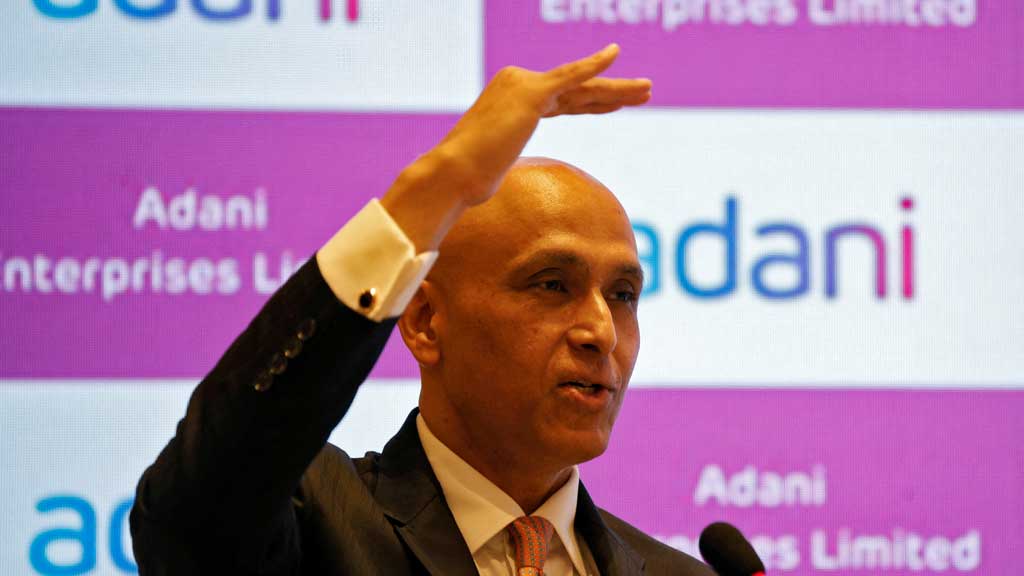Home / business / Elon Musk Backs New Self-Deportation App After Indian Columbia Student Uses It Amidst US Immigration Crackdown
Elon Musk Backs New Self-Deportation App After Indian Columbia Student Uses It Amidst US Immigration Crackdown
By: My India Times
5 minutes read 385Updated At: 2025-03-17

In a striking development amid the ongoing US immigration crackdown, Tesla CEO Elon Musk has publicly endorsed a new self-deportation application, stirring widespread debate. This endorsement came just a week after Ranjani Srinivasan, an Indian student at Columbia University, became one of the first individuals to utilize the CBP Home App for self-deportation.
The Trump administration has significantly intensified its measures against individuals allegedly violating immigration laws, leading to an increase in voluntary departures and deportations. The CBP Home App, developed by US Customs and Border Protection, has emerged as a controversial tool facilitating self-deportation. The app allows individuals to process their departure with government oversight, eliminating the need for traditional deportation procedures.
Ranjani Srinivasan’s Self-Deportation and Its Implications
Ranjani Srinivasan, an Indian student at Columbia University, gained national attention when she used the CBP Home App to self-deport. While details regarding her specific immigration status remain undisclosed, her decision to leave the US through the app marks a pivotal moment in the evolving immigration landscape.
The introduction of the CBP Home App has raised numerous questions regarding its implications on foreign students, visa holders, and undocumented immigrants. Immigration rights activists argue that the app indirectly pressures individuals to leave voluntarily instead of fighting their cases legally. On the other hand, supporters claim it offers an alternative to conventional deportation, providing a streamlined process that minimizes legal entanglements.
Elon Musk’s Endorsement Sparks Debate
Elon Musk, known for his outspoken views on governance and reform, endorsed the CBP Home App via social media, amplifying discussions surrounding self-deportation. Musk shared a post by US Customs and Border Protection about the app, adding his own comment: "New app to assist in self-deportation!"
Musk, who also serves as the chief of the US's governance reform agency DOGE, has been vocal about his views on immigration policies. His endorsement, however, has sparked mixed reactions, with some commending his support for regulatory measures and others criticizing him for seemingly endorsing policies that could disproportionately impact vulnerable communities.
Reactions from Political Figures and Immigration Advocates
Musk’s endorsement has ignited a wave of reactions from political figures, activists, and industry leaders. Some conservatives have praised Musk’s stance, viewing it as a reinforcement of stringent immigration laws. Others, particularly immigration rights advocates, have condemned his endorsement, arguing that it lacks empathy for those facing deportation due to systemic challenges.
"Elon Musk's endorsement of the self-deportation app is not only tone-deaf but also indicative of a growing trend of tech-driven solutions that fail to address the underlying issues of immigration policy," said immigration attorney Priya Patel.
On the other hand, former Trump administration official Stephen Miller lauded the development, stating, "This app is a step towards restoring law and order in our immigration system. It provides a clear path for those who need to leave the country voluntarily."
The Functionality and Controversy of the CBP Home App
The CBP Home App is designed to facilitate self-deportation by allowing users to:
Confirm their identity through government records.
Notify US immigration authorities of their intent to leave.
Arrange for departure verification at designated exit points.
Avoid prolonged detention and legal proceedings.
Despite its intended efficiency, the app has been met with criticism. Immigration experts warn that it could create an illusion of choice while actually coercing individuals into leaving without exploring their legal options. Many also fear that widespread adoption of such tools could normalize voluntary deportation as a standard response to visa or immigration issues.
Broader Implications for Immigration Policies in the US
The endorsement of the CBP Home App by influential figures like Musk signals a shift in how immigration policies are being implemented and perceived. The app’s existence reflects a larger trend of integrating technology into immigration enforcement, potentially reshaping how individuals interact with the system.
The Biden administration, which has taken a more lenient approach compared to Trump’s hardline policies, has yet to comment on the app’s increasing adoption. However, legal analysts predict that its long-term implications could include increased voluntary departures, reduced legal challenges, and a broader conversation about the ethical dimensions of self-deportation tools.
Public Reaction and Social Media Buzz
Musk’s tweet has fueled intense discussions on social media, with netizens weighing in on the broader implications of self-deportation technology. Some users mocked the idea, questioning whether Musk’s endorsement was satirical, while others debated whether the app was a humane alternative to forced deportation.
Tweets criticizing Musk included statements such as, “So now we have an app for deportation? What’s next, an AI judge to decide who stays?” Others defended Musk, asserting, “It’s about efficiency. If someone is in violation of immigration laws, why shouldn’t they have an option to leave easily?”
The Future of Tech-Driven Immigration Solutions
With the CBP Home App gaining attention, experts believe it may pave the way for more technological interventions in immigration enforcement. Potential future developments could include AI-driven case evaluations, digital visa compliance tracking, and automated legal advisory services.
However, the ethical considerations surrounding such tools remain a contentious issue. While proponents argue that technology can streamline and simplify immigration processes, critics warn against an over-reliance on digital systems that may lack human oversight and compassion.
Conclusion
Elon Musk’s endorsement of the self-deportation app has intensified the debate over technology’s role in immigration policies. While the CBP Home App presents a new approach to voluntary departures, concerns remain about its ethical implications and potential misuse. As discussions continue, it remains to be seen whether such digital solutions will shape the future of immigration enforcement or merely serve as a temporary fix for deeper systemic challenges.
....In a striking development amid the ongoing US immigration crackdown, Tesla CEO Elon Musk has publicly endorsed a new self-deportation application, stirring widespread debate. This endorsement came just a week after Ranjani Srinivasan, an Indian student at Columbia University, became one of the first individuals to utilize the CBP Home App for self-deportation.
The Trump administration has significantly intensified its measures against individuals allegedly violating immigration laws, leading to an increase in voluntary departures and deportations. The CBP Home App, developed by US Customs and Border Protection, has emerged as a controversial tool facilitating self-deportation. The app allows individuals to process their departure with government oversight, eliminating the need for traditional deportation procedures.
Ranjani Srinivasan’s Self-Deportation and Its Implications
Ranjani Srinivasan, an Indian student at Columbia University, gained national attention when she used the CBP Home App to self-deport. While details regarding her specific immigration status remain undisclosed, her decision to leave the US through the app marks a pivotal moment in the evolving immigration landscape.
The introduction of the CBP Home App has raised numerous questions regarding its implications on foreign students, visa holders, and undocumented immigrants. Immigration rights activists argue that the app indirectly pressures individuals to leave voluntarily instead of fighting their cases legally. On the other hand, supporters claim it offers an alternative to conventional deportation, providing a streamlined process that minimizes legal entanglements.
Elon Musk’s Endorsement Sparks Debate
Elon Musk, known for his outspoken views on governance and reform, endorsed the CBP Home App via social media, amplifying discussions surrounding self-deportation. Musk shared a post by US Customs and Border Protection about the app, adding his own comment: "New app to assist in self-deportation!"
Musk, who also serves as the chief of the US's governance reform agency DOGE, has been vocal about his views on immigration policies. His endorsement, however, has sparked mixed reactions, with some commending his support for regulatory measures and others criticizing him for seemingly endorsing policies that could disproportionately impact vulnerable communities.
Reactions from Political Figures and Immigration Advocates
Musk’s endorsement has ignited a wave of reactions from political figures, activists, and industry leaders. Some conservatives have praised Musk’s stance, viewing it as a reinforcement of stringent immigration laws. Others, particularly immigration rights advocates, have condemned his endorsement, arguing that it lacks empathy for those facing deportation due to systemic challenges.
"Elon Musk's endorsement of the self-deportation app is not only tone-deaf but also indicative of a growing trend of tech-driven solutions that fail to address the underlying issues of immigration policy," said immigration attorney Priya Patel.
On the other hand, former Trump administration official Stephen Miller lauded the development, stating, "This app is a step towards restoring law and order in our immigration system. It provides a clear path for those who need to leave the country voluntarily."
The Functionality and Controversy of the CBP Home App
The CBP Home App is designed to facilitate self-deportation by allowing users to:
Confirm their identity through government records.
Notify US immigration authorities of their intent to leave.
Arrange for departure verification at designated exit points.
Avoid prolonged detention and legal proceedings.
Despite its intended efficiency, the app has been met with criticism. Immigration experts warn that it could create an illusion of choice while actually coercing individuals into leaving without exploring their legal options. Many also fear that widespread adoption of such tools could normalize voluntary deportation as a standard response to visa or immigration issues.
Broader Implications for Immigration Policies in the US
The endorsement of the CBP Home App by influential figures like Musk signals a shift in how immigration policies are being implemented and perceived. The app’s existence reflects a larger trend of integrating technology into immigration enforcement, potentially reshaping how individuals interact with the system.
The Biden administration, which has taken a more lenient approach compared to Trump’s hardline policies, has yet to comment on the app’s increasing adoption. However, legal analysts predict that its long-term implications could include increased voluntary departures, reduced legal challenges, and a broader conversation about the ethical dimensions of self-deportation tools.
Public Reaction and Social Media Buzz
Musk’s tweet has fueled intense discussions on social media, with netizens weighing in on the broader implications of self-deportation technology. Some users mocked the idea, questioning whether Musk’s endorsement was satirical, while others debated whether the app was a humane alternative to forced deportation.
Tweets criticizing Musk included statements such as, “So now we have an app for deportation? What’s next, an AI judge to decide who stays?” Others defended Musk, asserting, “It’s about efficiency. If someone is in violation of immigration laws, why shouldn’t they have an option to leave easily?”
The Future of Tech-Driven Immigration Solutions
With the CBP Home App gaining attention, experts believe it may pave the way for more technological interventions in immigration enforcement. Potential future developments could include AI-driven case evaluations, digital visa compliance tracking, and automated legal advisory services.
However, the ethical considerations surrounding such tools remain a contentious issue. While proponents argue that technology can streamline and simplify immigration processes, critics warn against an over-reliance on digital systems that may lack human oversight and compassion.
Conclusion
Elon Musk’s endorsement of the self-deportation app has intensified the debate over technology’s role in immigration policies. While the CBP Home App presents a new approach to voluntary departures, concerns remain about its ethical implications and potential misuse. As discussions continue, it remains to be seen whether such digital solutions will shape the future of immigration enforcement or merely serve as a temporary fix for deeper systemic challenges.
By: My India Times
Updated At: 2025-03-17
Tags: business News | My India Times News | Trending News | Travel News
Join our WhatsApp Channel































.jfif)






























































































.png)
 (1).png)























